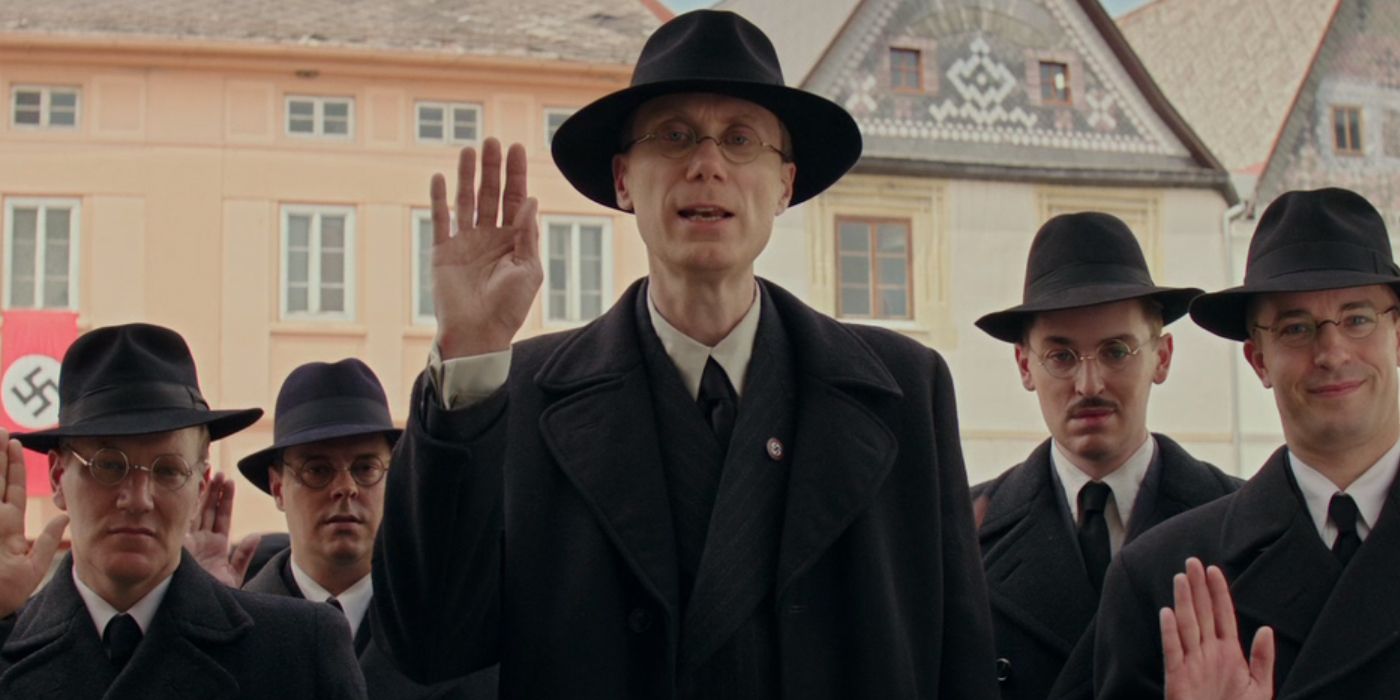Taika Waititi’s new “anti-hate satire” Jojo Rabbit hasn’t been quite the runaway hit that many were expecting, with the positive reviews countered by critics who were disappointed with the Thor: Ragnarok director’s latest offering. The movie stars Waititi himself as Adolf Hitler – or rather, an imaginary version of Hitler invented by a boy called Jojo, who lives in 1940s Germany in the waning days of World War II, and is trying to fit in as a member of the Hitler Youth.
After working his way up through quirky comedy TV shows and movies in his native New Zealand, Waititi gained wider acclaim with the one-two hit of his comedy films What We Do in the Shadows and Hunt For the Wilderpeople. After that, he was hired by Marvel Studios to direct Thor: Ragnarok, bringing the franchise back on track after the rocky middle entry Thor: The Dark World, and quickly being locked in for another sequel, Thor: Love and Thunder.
With his strong track record, many assumed that Jojo Rabbit would be another slam dunk for Waititi, especially after it won the People’s Choice Award at Toronto International Film Festival. But while Waititi’s last three movies have all landed “Certified Fresh” badges on Rotten Tomatoes, with scores of 90+%, Jojo Rabbit‘s score currently stands at 77% on its weekend of release. Here are a few critics’ takes on why they were disappointed by Jojo Rabbit.
AV Club:
No matter how nervous its “risky” premise makes the execs at Disney, Jojo Rabbit isn’t much of a provocation. It doesn’t want to get a rise out of its audience; it just wants to tug at heartstrings and renew faith in the resilience of the human spirit. Only those who think it’s fundamentally inappropriate to poke fun at Hitler—something artists have been doing since he was still alive—will be shocked in any way by this twee, treacly, and sporadically amusing movie.
The Guardian:
It’s exhaustively well-worn territory, not just the subgenre at large but also the dynamic at its centre… [Jojo Rabbit] exists in such a colour-coded Wes Anderson-esque universe that the true horror of the war always seems far removed. It’s oddly safe, given the subject matter, and the humour is similarly sanitised. What Waititi thinks is shockingly audacious is in fact frustratingly timid, he opts for a gentle prod when maybe a punch would do.
Slant:
Waititi proves incapable of dealing with the twin horrors of oppression and indoctrination, of young and old alike, beyond cheap-seats sentimentality and joke-making… Waititi prefers to treat his audience like drooling cretins who need their hands held through every shift in tone, reassured that everything, even in a world off its axis, is going to work out.
Variety:
The ultimate intent of the comedy in Jojo Rabbit isn’t to make us laugh. It’s to get the audience to flatter itself for liking a movie that pretends to be audacious when it’s actually quite tidy and safe… It’s actually a studiously conventional movie dressed up in the self-congratulatory “daring” of its look!-let’s-prank-the-Nazis cachet.

Like the equally divisive recent release Joker, the problem with Jojo Rabbit for many critics is not that it takes its subject matter too far, but that it plays it too safe. After all, it’s been more than half a century since Mel Brooks’ The Producers was released, and Adolf Hitler has been lampooned many, many times since then. While Waititi’s comedic sensibilities and familiarity with coming-of-age stories helped him tackle that side of Jojo Rabbit, many reviewers felt that he fell short when it came to conveying the darker side of Nazi Germany. Still, Jojo Rabbit had enough going for it to win over these critics:
Entertainment Weekly:
Through a certain lens, some viewers will undoubtedly see what Watiti is doing here as a kind of smug, misguided Wes Anderson-ization of a subject that has no statute of limitations for satire… But the New Zealand-born director… finds such strange, sweet humor in his storytelling that the movie somehow maintains its ballast, even when the tone inevitably (and it feels, necessarily) shifts.
New Yorker:
This singular movie flicks back and forth between its contradictory moods. On the one hand, there is the growth of love and understanding between Elsa and Jojo; on the other hand, there is the defiance, or the near-desperation, with which Waititi flies the banner of farce. How are we supposed to laugh—can we still laugh—when we’ve just seen corpses swinging from the gallows in a town square? It’s no surprise that the film should so often stumble and trip, yet I would sooner watch it again and sort through my mixed feelings about it than revisit, say, the nullity of Joker. There is genuine zest in the unease of Jojo Rabbit, and it’s weirdly convincing as a portrait of childhood under surreal strain.
Rolling Stone:
Love or hate Jojo Rabbit, it’s damn near impossible to shake… The film, which grows less comic and more delicate as it moves toward its foregone conclusion, may fall short of greatness, but it never sinks to the maudlin… It’s in the small moments that Jojo Rabbit achieves its greatest impact. Waititi’s faith in the notion that a child will lead us out of ignorance may be naïve. It’s also deeply affecting.




